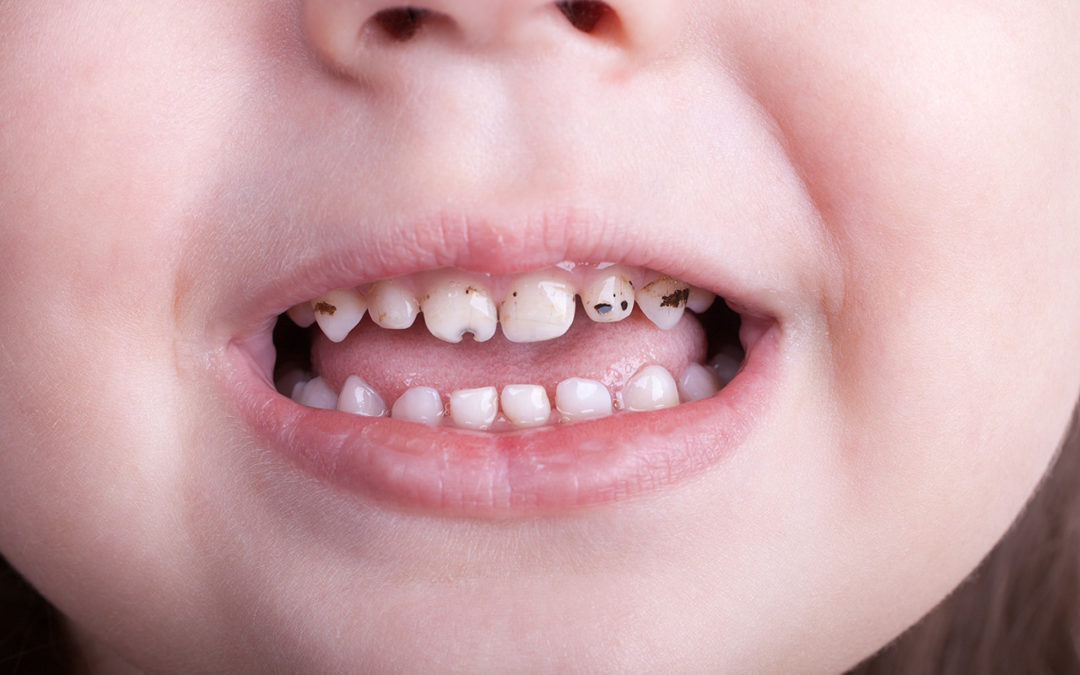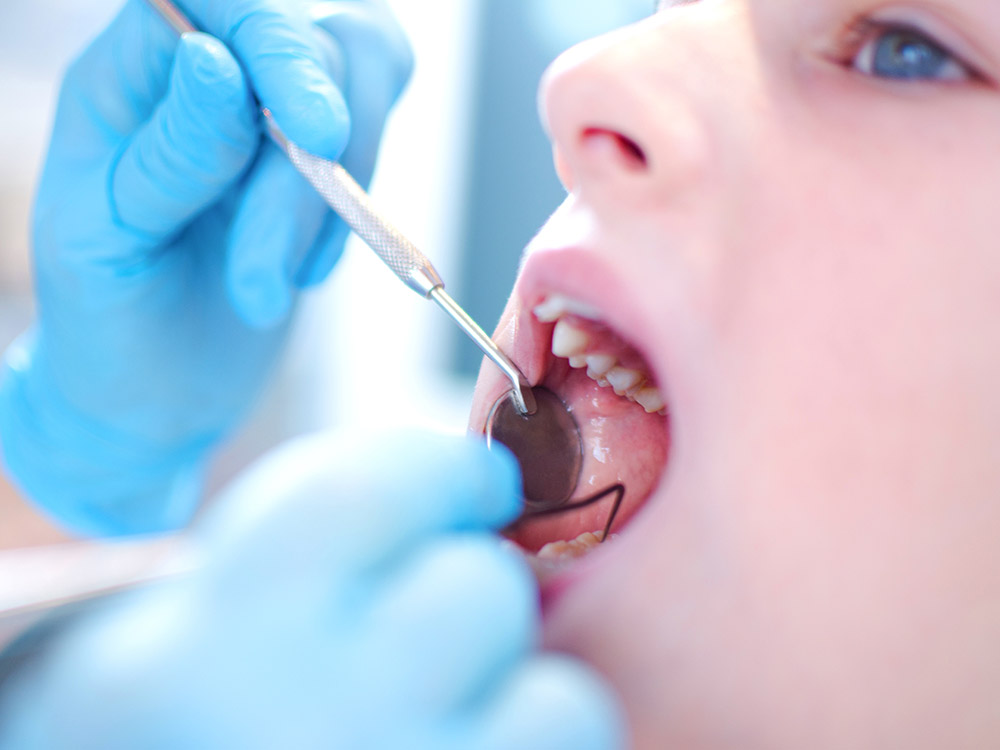Although the child’s first teeth are temporary, they are still essential and sensitive to caries. As a matter of fact, tooth decay is the most common chronic infectious dental disease of early childhood. This is why you need to follow good dental hygiene habits at an early stage, in order to help in the prevention of tooth decay as well as other infections.

When sweet liquids such as milk are introduced frequently into your baby’s mouth, sugars are trapped in the bacterial plaque (a sticky combination of saliva and bacteria that clings to the teeth). Bacteria break down natural sugars and start producing an acid by-product which attacks the enamel of the tooth. Each time your child consumes juices, formula along with other sweets, the process repeats itself and causes cavities, infections and a large number of other issues. Bottle wear often appears when children are put to bed or to sleep with bottles of milk or juice. Saliva flow is reduced and reservoirs of sweet liquid in the mouth as well as acids attack the teeth for a long period of time. Early childhood caries is also a usual condition in infants who breastfeed for a long time without brushing their teeth and also for infants who have their pacifiers often dipped in sugar, syrup and honey (a tactic that fortunately tends to be eliminated).
Baby bottle tooth decay happens when sweetened liquids or liquids which contain natural sugars cling to infants’ teeth for a long time. Therefore, bacteria prosper on the sugary debris and start the creation of acids which begin to attack the teeth.
The front teeth are more common to be affected, however any of your child’s teeth can be affected by baby bottle tooth decay.
Baby teeth are essential for the growth and development of the children and serve as place holders for the future adult teeth. Thus, unhealthy baby teeth might lead to issues, such as:

People who think that you must not worry about any cavities that occur in baby teeth as they fall out anyway, are wrong.
Early childhood decay can affect your baby’s oral health for the rest of their life. A tooth cavity cannot only cause tenderness, pain or discomfort but it might also require early extraction. To give an instance, if the first teeth come out too early due to caries, the remaining teeth might move out of space and leave no space for the permanent teeth.
On the contrary, permanent teeth do not align and cause additional issues. Severe cavities are also associated with a great number of systemic diseases – such as: heart disease and could also lead to life-threatening dental infections.
Dissimilar to cavities which can be found in permanent teeth that are hidden in cracks or between them, tooth decay commonly appears in the most visible part of the front teeth. The condition then moves to the lower teeth and ultimately attacks the molars.
In the initial stages the dentist can detect and then treat the wear with simple restorative procedures. However, if the conditions progress to the point where degradation touches the tooth enamel, the decomposition process accelerates and requires further treatments. Therefore, it is recommended to take your child to a professional dentist as soon as possible, if they experience any of the following:
The treatment alternatives depend on your child’s age and the severity of their condition. The initial signs of tooth decay often include white spots on the oral surface of the enamel on the upper front teeth. At this stage, the dentist might recommend a fluoride treatment in order to assist in the removement and strengthening of the enamel.
This process reverses the effects of tooth decay and naturally it assists in the protection of the teeth. Furthermore, you can follow some dietary changes which could help, changes like this are such as: reducing sugary and acidic foods. If a cavity starts its formation, your child might experience several extensive restorations and treatments. Although, the extraction of the first teeth is used from your dentist as a last solution.
The greatest approach to baby bottle tooth decay is prevention. If you really want to help take care of your baby’s teeth, you can take the following steps into consideration:

If your baby’s teeth begin to occur uncharacteristically white, yellow or brown or even if your child starts to experience any pain or discomfort then they might be facing symptoms of baby bottle tooth decay. The dental treatments that are provided from your dentist, vary depending on the severity of the tooth decay.
White spots might become prevalent on the tooth enamel, at which point fluoride can serve as a solution to this issue, along with a reduction in sugar consumption and practicing good oral hygiene habits.
If tooth decay passes untreated, it might be spotted at later stages. During those stages, fluoride dental treatments will not be enough in order to reverse the tooth decay.
Symptoms of more severe tooth decay, include:
If your baby is experiencing more severe symptoms of baby bottle decay, it is required to visit a dentist as soon as possible. Leaving the teeth untreated might lead to extreme dental issues or loss of the teeth.
If you are concerned about your child’s oral hygiene you can schedule an appointment with the professional and well-trained dentists of City Dental Clinic. We assure you the most effective and quick dental treatments for you and your child. Contact our specialized team now!